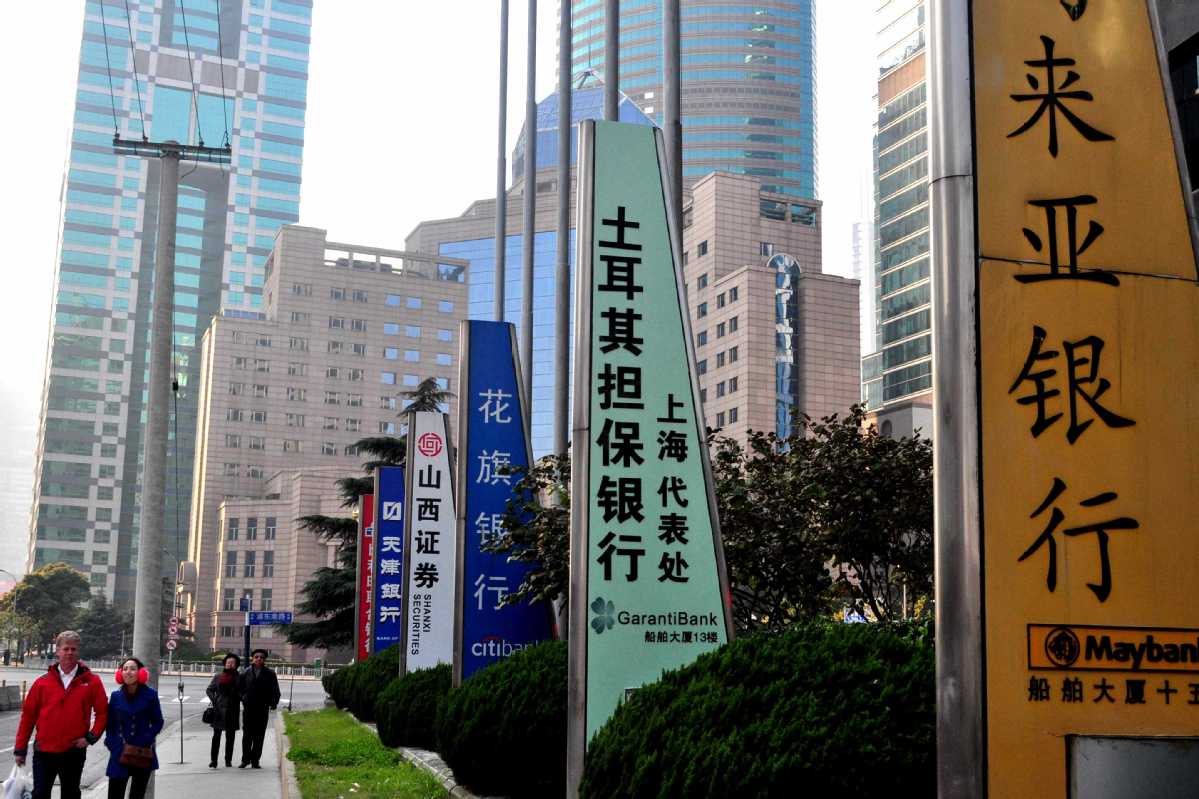
File Photo: Getty Images
As China highlights coordinated regional development as a key driver of the nation's economic growth in the 14th Five-Year Plan period (2021-25), how the Yangtze River Delta region should contribute to this pursuit has figured in heated discussions among economists and policymakers.
The Fifth Plenary Session of the 19th Central Committee of the Communist Party of China has underscored several policy priorities for the five-year plan period, including deepening major regional development strategies and promoting coordinated development among different regions.
The Yangtze River Delta, the cluster contributing a quarter of the country's GDP and covering Shanghai as well as Jiangsu, Zhejiang and Anhui provinces, is expected to deepen integration and back the nation's coordinated regional development, although a specific road map has not been decided.
Regional development
We would argue that the financial services industry should lead the way to integrated development of the region, with Shanghai playing a more important role in driving related progress.
Finance is seen playing a pivotal role in social and economic development. For the integration of the Yangtze River Delta, it can serve as a key push in at least three aspects: promoting infrastructure connections; empowering innovative industries; and supporting growth of wealth and consumption upgrade.
The foundation of Yangtze River Delta integration is the linking of public services and infrastructure such as railways and highways, a process that entails a large amount of investment.
Financial institutions should step up innovation and improve financing services for infrastructure projects like those under the PPP(public-private partnership) framework.
Also, the establishment of a system of innovative industries lies at the core of enhancing the competitiveness of the Yangtze River Delta. The financial services industry can extend its role of helping market players in the region to sharpen their development capability, providing better financial services to both large corporations and the smaller ones with development potential.
Moreover, boosting people's wealth and consumption is key to tapping into the potential of domestic demand during the 14th Five-Year Plan period, while per capita wealth and consumption in the Yangtze River Delta have long been in the forefront of the country.
To promote the accumulation of household wealth and consumption upgrade, the development of asset management and consumer finance services must speed up.
Propelling integration
Shanghai, as a rising financial hub with a concentration of financial institutions, corporate headquarters and talent, should make more efforts to maximize the role of finance in pushing ahead integrated development of the region.
First of all, the city should further lift its heft as an onshore financial services center and step up to build itself into an offshore financial hub as well, which will facilitate investment and trade within the region and help it to attract more investments both from home and abroad.
By far, the city has become an onshore international financial services center with the Lujiazui area at the core, while it should further extend its functions in the pricing of onshore renminbi, settlement, securities financing, commodity pricing, and asset management.
Meanwhile, given that reform and opening-up policies have made breakthroughs in the China (Shanghai) Pilot Free Trade Zone, it is feasible to build an offshore financial center with the Lin-gang Special Area, a new section of the free trade zone, at the heart.
The center should fulfill the roles such as overseas investment, the pricing of offshore renminbi, and cross-border trade financing.
Second, stakeholders can work together to maximize the role of Shanghai's STAR Market in spurring innovation within the region, especially when it comes to facilitating the growth of tech startups yet to float their shares.
The STAR Market on the Shanghai Stock Exchange, the pioneer of the country's market-oriented reform of the initial public offering system and designed to become the cradle of China's technology leaders, has seen more than 180 firms raise money from IPOs since it debuted in July 2019.
Governmental platforms could deepen cooperation with private equity funds of funds that invest in tech firms, especially those having the potential of going public on the STAR Market, to provide advisory and other services or invest in those firms.
This will, in tandem with the STAR Market, facilitate the financing of public firms, and help form systematic financial supports for technology firms at different stages of development.
Third, to better serve small businesses and promote industrial upgrading, Shanghai should propel the development of supply chain finance by virtue of being home to many corporate headquarters.
A lot of medium, small and micro businesses spread in the Yangtze River Delta region and are an indispensable part of the region's industrial chain. The large corporations headquartered in the city are usually at the heart of local supply chains and have close connections to the upstream and downstream businesses of smaller sizes.
Therefore, Shanghai can roll out more favorable policies to encourage large corporations to provide more financial services to smaller market entities, such as offering credit loans as well as providing financing based on accounts receivable, prepaid expense, and inventories.

Billboards of foreign and domestic financial institutions are seen on a street in Shanghai. (Photo: China Daily)
Unified regulation
The city can also initiate the push for top-level design of unified financial regulation of the area, by leveraging the role of the Shanghai Head Office of the People's Bank of China, the central bank, in coordinating financial regulatory work of different authorities within the region.
A great deal of regulatory coordination is needed to give full play to the role of finance in promoting economic development. For example, regulatory coordination can help in the establishment of integrated financial infrastructure like databases.
It is essential to build a financial information database with unified standards across the region, using big data, cloud computing, blockchain and other financial technologies.
The information to be collected should cover financial assets, income, consumption and investment behavior, risk level, and other variables of households and corporates.
As such information entails requirements of high privacy and confidentiality, and is widely spread across real-economy businesses, fintech, financial institutions, and regulators, it is necessary for the government and market entities to cooperate in data collection.
One key element of the infrastructure to be built could be a unified system for residents across the region to pay for public transportation, water, electricity and other public services, by connecting the payment and settlement systems of financial institutions, third-party payment platforms and related enterprises.


